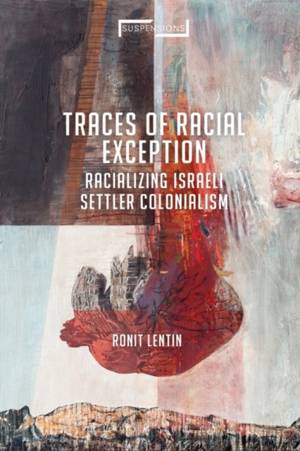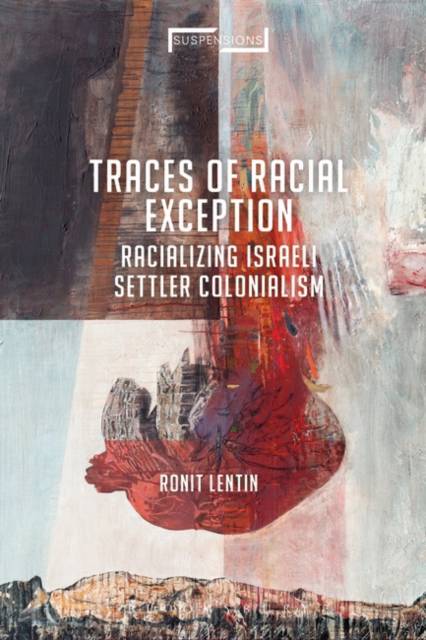
- Afhalen na 1 uur in een winkel met voorraad
- Gratis thuislevering in België vanaf € 30
- Ruim aanbod met 7 miljoen producten
- Afhalen na 1 uur in een winkel met voorraad
- Gratis thuislevering in België vanaf € 30
- Ruim aanbod met 7 miljoen producten
Zoeken
Traces of Racial Exception Racializing Israeli Settler Colonialism
Racializing Israeli Settler Colonialism
Ronit Lentin
€ 79,95
+ 159 punten
Omschrijving
Positioning race front and centre, this book theorizes that political violence, in the form of a socio-political process that differentiates between human and less-than-human populations, is used by the state of Israel in racializing and ruling the citizens of occupied Palestine.
Lentin argues that Israel's rule over Palestine is an example of Agamben's state of exception, Goldberg's racial state and Wolfe's settler colony; the Israeli racial settler colony employs its laws to rule besieged Palestine, while excluding itself and its Jewish citizen-colonists from legal instruments and governmental technologies. Governing through emergency legislation and through practices of exception, emergency, necessity and security, Israel positions itself outside domestic and international law.
Deconstructing Agamben's Eurocentric theoretical position Lentin shows that it occludes colonialism, settler colonialism and anti-colonialism and fails to specifically foreground race; instead she combines the work of Wolfe, who proposes race as a trace of settler colonialism, and Weheliye, who argues that Agamben's western-centric understanding of exception fail to speak from explicitly racialized and gendered standpoints.
Employing existing media, activist, and academic accounts of racialization this book deliberately breaks from white, Western theorizations of biopolitics, exception, and bare life, and instead foregrounds race and gender in analysing settler colonial conditions in Israel.
Lentin argues that Israel's rule over Palestine is an example of Agamben's state of exception, Goldberg's racial state and Wolfe's settler colony; the Israeli racial settler colony employs its laws to rule besieged Palestine, while excluding itself and its Jewish citizen-colonists from legal instruments and governmental technologies. Governing through emergency legislation and through practices of exception, emergency, necessity and security, Israel positions itself outside domestic and international law.
Deconstructing Agamben's Eurocentric theoretical position Lentin shows that it occludes colonialism, settler colonialism and anti-colonialism and fails to specifically foreground race; instead she combines the work of Wolfe, who proposes race as a trace of settler colonialism, and Weheliye, who argues that Agamben's western-centric understanding of exception fail to speak from explicitly racialized and gendered standpoints.
Employing existing media, activist, and academic accounts of racialization this book deliberately breaks from white, Western theorizations of biopolitics, exception, and bare life, and instead foregrounds race and gender in analysing settler colonial conditions in Israel.
Specificaties
Betrokkenen
- Auteur(s):
- Uitgeverij:
Inhoud
- Aantal bladzijden:
- 280
- Taal:
- Engels
- Reeks:
Eigenschappen
- Productcode (EAN):
- 9781350150942
- Verschijningsdatum:
- 31/10/2019
- Uitvoering:
- Paperback
- Formaat:
- Trade paperback (VS)
- Afmetingen:
- 156 mm x 234 mm
- Gewicht:
- 394 g

Alleen bij Standaard Boekhandel
+ 159 punten op je klantenkaart van Standaard Boekhandel
Beoordelingen
We publiceren alleen reviews die voldoen aan de voorwaarden voor reviews. Bekijk onze voorwaarden voor reviews.








